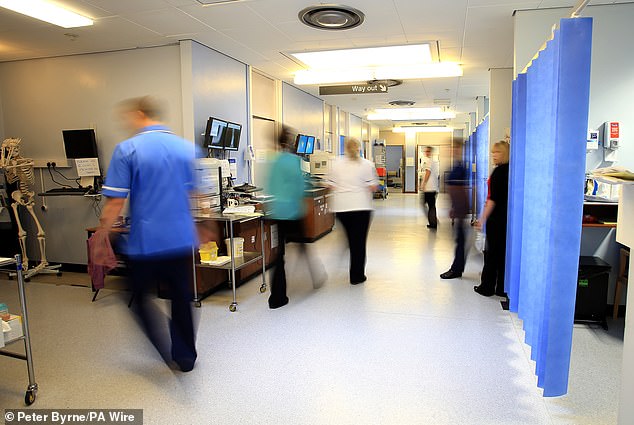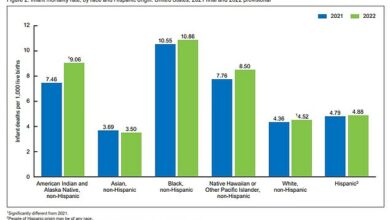Nearly half of NHS patients have seen their health deteriorate while waiting to be admitted to hospital, a damning study has found




A damning study has found that more than four in 10 NHS patients saw their health deteriorate while waiting for hospital admission.
According to the Care Quality Commission, its annual survey of 63,500 people shows that long waiting lists are increasingly damaging to public health.
About 43 percent told the watchdog that their health had deteriorated during their stay on the list, up from 41 percent the year before.
Of those who said their condition had worsened, a quarter (25 percent) said it had become ‘slightly worse’ and just under a fifth (18 percent) said it had become ‘a lot worse’.
About 42 percent of respondents who were in hospital for elective care said they would have liked to have been admitted earlier, compared to 39 percent a year earlier.
The CQC said an “imbalance” between patient demand and treatment capacity was leading to delays and “risks to people”.

More than four in ten NHS patients saw their pain worsen while waiting to be admitted to hospital (file image)

About 42 percent of respondents who were in hospital for elective care said they would have liked to have been admitted earlier, compared to 39 percent a year earlier (file image)
Delays can leave people in excruciating pain, unable to work, and requiring more intensive treatment once they finally make it to the operating room.
It can also hinder the chances of recovery.
A separate study by the Health Foundation think tank found that patients in the UK face some of the longest waiting times for hospital care in the developed world.
Health Minister Wes Streeting has warned the health service is “broken” and has ordered an investigation into the scale of the problem.
This while waiting lists have grown to 7.6 million and taxpayers are forced to finance increasing social benefits as more and more people report sick.
The CQC surveyed 63,500 people who stayed at least one night in one of the 131 acute and specialist NHS hospitals in England last November.
The survey has been conducted annually since 2002.
Only 75 percent said they “always” felt included in discussions about their care by doctors and 82 percent felt they were “always” treated with dignity and respect by hospital staff.
Only 63 percent said they could “always” call on a staff member if they needed attention.
Approximately 70 percent of patients reported “always” receiving the help they needed with washing and 64 percent “always” receiving the help they needed with eating.
Patients also remained dissatisfied with discharge planning and procedures.
Only 33 percent of respondents reported being ‘very’ involved in decisions about their discharge and 44 percent reported being ‘certain’ about what would happen to their care after discharge from hospital.
Nicola Wise, director of secondary and specialist healthcare at the CQC, said: ‘It is disappointing that we have not seen more improvement in patient experience since the last time the survey was conducted.
‘Overall, satisfaction rates are still much lower than pre-Covid. Delays in accessing care and poorly coordinated hospital discharges are clear factors that impact the quality of people’s stay in hospital.

Health Minister Wes Streeting (pictured) has warned the health service is ‘broken’ and has ordered an investigation into the scale of the problem
‘It is also concerning that we are seeing an increase in the number of people who feel their health has deteriorated while waiting for elective care. This is further evidence that the current imbalance between patient demand and treatment capacity is putting people at risk.’
Louise Ansari, chief executive of patient watchdog Healthwatch England, said: ‘It is worrying that the number of patients saying their health has deteriorated while waiting for hospital admission is increasing, particularly given the NHS’s efforts to tackle waiting times.
‘The NHS will not reduce waiting times overnight, but more needs to be done to prioritise those in greatest need and improve the waiting experience.
‘Central to this are regular checks on people’s condition and pain levels and better support for physical and mental health complaints.’
Ruth Thorlby, deputy director of policy at the think tank, commented on the Health Foundation’s research: ‘These findings show that the UK consistently ranks near the bottom when it comes to people’s experiences of healthcare, compared with other high-income countries.
‘The combined effect of the pandemic and below-average growth in spending has left the NHS in a vulnerable state.’
A Department of Health and Social Care spokesperson said: ‘The results of this survey confirm what we already knew: the NHS is broken, but not defeated.
“Our priority is to get the NHS back on its feet, but that will take time.”




